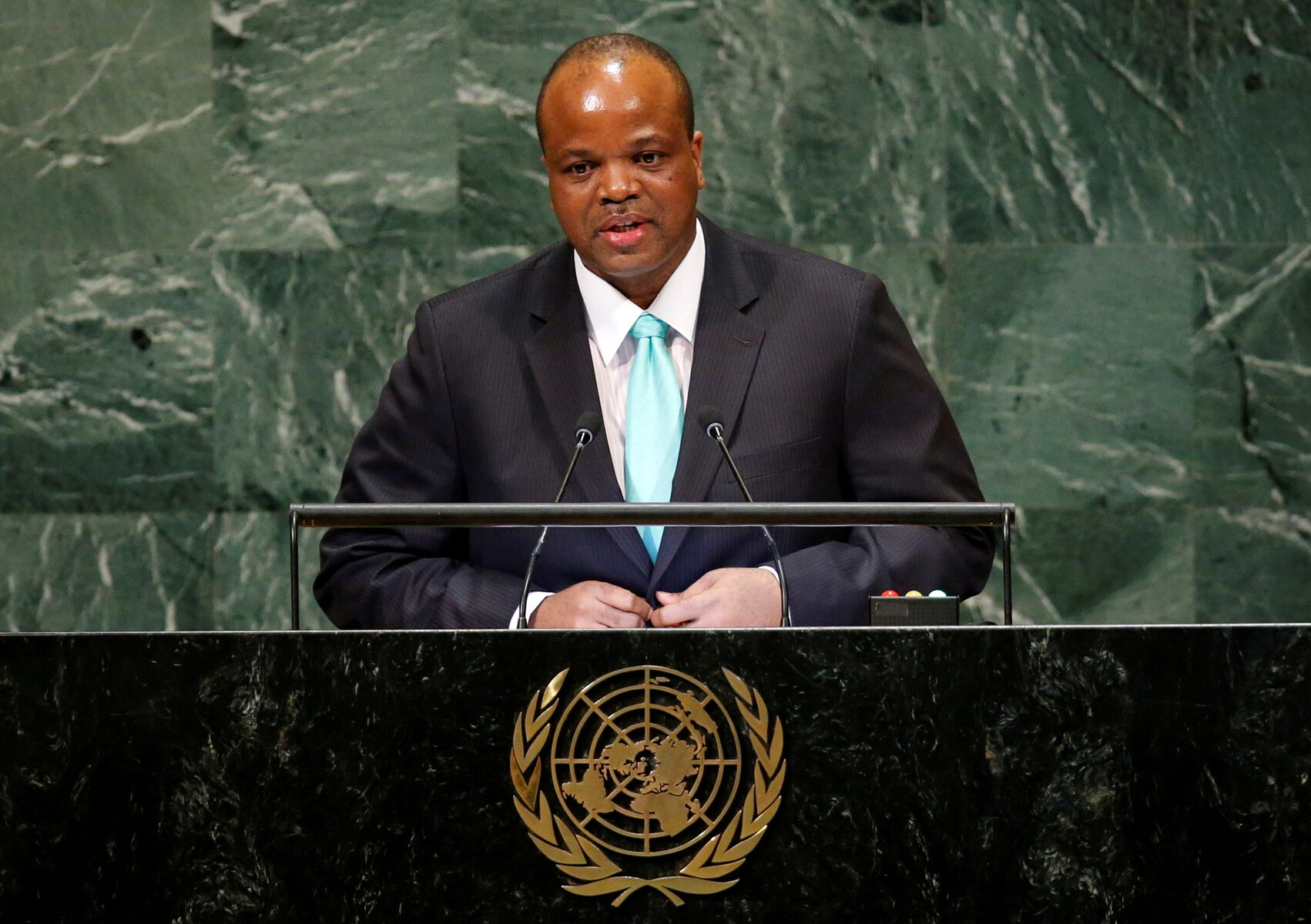
King Mswati III, the current monarch of the Kingdom of Eswatini (formerly known as Swaziland), is a figure of great intrigue and fascination. With a reign that has spanned over three decades, he has become one of the most influential and controversial leaders in Africa. From his opulent lifestyle to his unusual marital practices, there is no shortage of captivating facts about this enigmatic king. In this article, we will delve into 22 astounding facts about King Mswati III, shedding light on both his personal life and the impact he has had on his kingdom. Prepare to be amazed as we unravel the mysteries surrounding this renowned monarch.
Key Takeaways:
- King Mswati III of Swaziland became king at 18, has multiple wives, and rules without a constitution. He’s known for his lavish lifestyle and faces criticism for human rights abuses.
- King Mswati III, the longest-reigning monarch in Swazi history, has spearheaded HIV/AIDS awareness and infrastructure development. He’s also faced criticism for lavish spending and political reform calls.
Ascended to the throne at the age of 18
King Mswati III became the ruler of Swaziland at the young age of 18, making him one of the world’s youngest ruling monarchs.
The last absolute monarch in Africa
As the current King of Swaziland, Mswati III holds absolute power and governs the country without a constitutional limitation, distinguishing him from most other African leaders.
Has multiple wives
King Mswati III is known for his polygamous lifestyle and has been reported to have more than 15 wives, although some sources suggest the number may be even higher.
Celebrates the Reed Dance ceremony
The Reed Dance ceremony, also known as Umhlanga, is an annual traditional event in Swaziland where young unmarried women dance for the king and play a significant role in preserving cultural heritage.
Established the Swaziland National Trust Commission
King Mswati III founded the Swaziland National Trust Commission in 1972, aiming to safeguard and protect natural and cultural heritage sites within the country.
Owns the largest palace in the world
Lobamba Royal Palace, the primary residence of King Mswati III, is recognized as the largest palace in the world, covering an area of approximately 1,500 acres.
Rules by decree
King Mswati III has the authority to rule by decree, allowing him to enact laws and regulations without the approval of the parliament or other governing bodies.
Introduced a new constitution
In 2005, King Mswati III implemented a new constitution in Swaziland, providing some limited democratic reforms while retaining his position as the absolute monarch.
Controls the majority of Swaziland’s wealth
With vast control over land and other resources, King Mswati III has amassed significant wealth and is often regarded as one of the richest monarchs in the world.
Known for his extravagant lifestyle
King Mswati III is known for his lavish lifestyle, frequently seen wearing traditional attire and hosting grand events that showcase Swazi culture.
Has faced criticism for human rights abuses
The reign of King Mswati III has been marred by allegations of human rights abuses, including restrictions on freedom of speech and political dissent.
Has spearheaded efforts for HIV/AIDS awareness
Despite controversy surrounding his reign, King Mswati III has been actively involved in promoting HIV/AIDS awareness and prevention programs in Swaziland.
Swaziland changed its name during his reign
In 2018, during King Mswati III’s reign, the country of Swaziland officially changed its name to the Kingdom of Eswatini.
Has contributed to infrastructure development
Under King Mswati III’s leadership, Swaziland has witnessed significant infrastructure development, particularly in areas such as transportation, telecommunications, and healthcare.
Faces calls for political reform
There have been growing calls from both domestic and international entities for political reform in Swaziland to increase democratic participation and limit the king’s absolute powers.
Patron of cultural festivals
As a symbol of cultural preservation, King Mswati III serves as a patron for various traditional festivals and events, promoting the rich heritage of Swaziland.
Oversees economic policies
King Mswati III plays a crucial role in shaping economic policies in Swaziland, guiding the country’s development and investment strategies.
Traditional healer
Aside from his political responsibilities, King Mswati III is known for his interest in traditional healing practices and has been recognized as a traditional healer himself.
Has faced criticism for lavish spending
The king has faced criticism for his extravagant spending habits, including building extravagant residences and acquiring luxurious vehicles while many Swazis live in poverty.
Actively involved in regional and international affairs
King Mswati III has taken an active role in regional and international affairs, representing Swaziland at various summits, conferences, and diplomatic events.
Confers cultural honors and titles
As the custodian of Swazi culture, King Mswati III confers cultural honors and titles to individuals who contribute to the preservation and promotion of Swazi traditions.
The longest-reigning monarch in Swazi history
With over 35 years on the throne, King Mswati III holds the record for being the longest-reigning monarch in the history of Swaziland.
Conclusion
In conclusion, the life and reign of King Mswati III of Swaziland have been nothing short of astounding. From his ascension to the throne at the young age of 18 to his efforts in modernizing Swaziland while preserving its cultural heritage, King Mswati III has left an indelible mark on his country’s history.His commitment to improving the lives of the Swazi people is evident in his various initiatives, such as the implementation of free primary education and the promotion of HIV/AIDS awareness. Additionally, his leadership has seen Swaziland make significant strides in economic development and foreign relations.As the last absolute monarch in Africa, King Mswati III’s reign has been a subject of intrigue and fascination. His ability to navigate the complexities of both tradition and progress has garnered attention both domestically and internationally. It is clear that his influence and legacy extend far beyond the borders of Swaziland.In conclusion, King Mswati III’s reign as the monarch of Swaziland is a testament to his remarkable achievements and unwavering dedication to his country and its people.
FAQs
1. When did King Mswati III ascend to the throne?
King Mswati III ascended to the throne on April 25, 1986, following the death of his father, King Sobhuza II.
2. How many wives does King Mswati III have?
King Mswati III has a reputation for having multiple wives. As of 2021, he has married a total of 15 wives.
3. What efforts has King Mswati III made to modernize Swaziland?
King Mswati III has implemented various initiatives to modernize Swaziland, including improving education, promoting healthcare, and encouraging economic development.
4. What is the current state of Swaziland’s economy under King Mswati III’s reign?
Under King Mswati III’s leadership, Swaziland’s economy has experienced growth, with efforts focused on diversifying industries, attracting foreign investments, and reducing poverty.
5. How has King Mswati III contributed to HIV/AIDS awareness in Swaziland?
King Mswati III has been proactive in addressing the HIV/AIDS epidemic in Swaziland, launching awareness campaigns and supporting initiatives to combat the disease.
6. What is the significance of King Mswati III as the last absolute monarch in Africa?
As the last absolute monarch in Africa, King Mswati III’s reign has drawn attention for its unique blend of tradition and modern governance, making him a figure of interest within the continent.
7. How has King Mswati III balanced tradition and progress during his reign?
King Mswati III has sought to preserve Swazi cultural traditions while also driving forward progress in areas such as education, healthcare, and economic development.
8. How has King Mswati III’s reign impacted Swaziland’s foreign relations?
Under King Mswati III’s leadership, Swaziland has actively engaged with the international community, forging diplomatic ties and participating in regional organizations.
9. How will King Mswati III be remembered in Swaziland’s history?
King Mswati III will be remembered as a transformative figure in Swaziland’s history, for his contributions to the nation’s development and his enduring legacy as a monarch.
10. What is the current status of Swaziland’s monarchy after King Mswati III?
As of now, the monarchy continues under the leadership of King Mswati III. However, the future succession and the potential for a constitutional monarchy remain topics of discussion and speculation.
King Mswati III's reign is filled with astounding facts, but there's more to discover about this fascinating monarch. Delve deeper into King Mswati III's life and rule, or explore the rich history and culture of Eswatini, formerly known as Swaziland. For those interested in African politics, Robert Gabriel Mugabe's intriguing story is another must-read. Each of these articles offers unique insights into the complex world of African leadership and the countries they govern, providing readers with a comprehensive understanding of the region's political landscape.
Was this page helpful?
Our commitment to delivering trustworthy and engaging content is at the heart of what we do. Each fact on our site is contributed by real users like you, bringing a wealth of diverse insights and information. To ensure the highest standards of accuracy and reliability, our dedicated editors meticulously review each submission. This process guarantees that the facts we share are not only fascinating but also credible. Trust in our commitment to quality and authenticity as you explore and learn with us.


